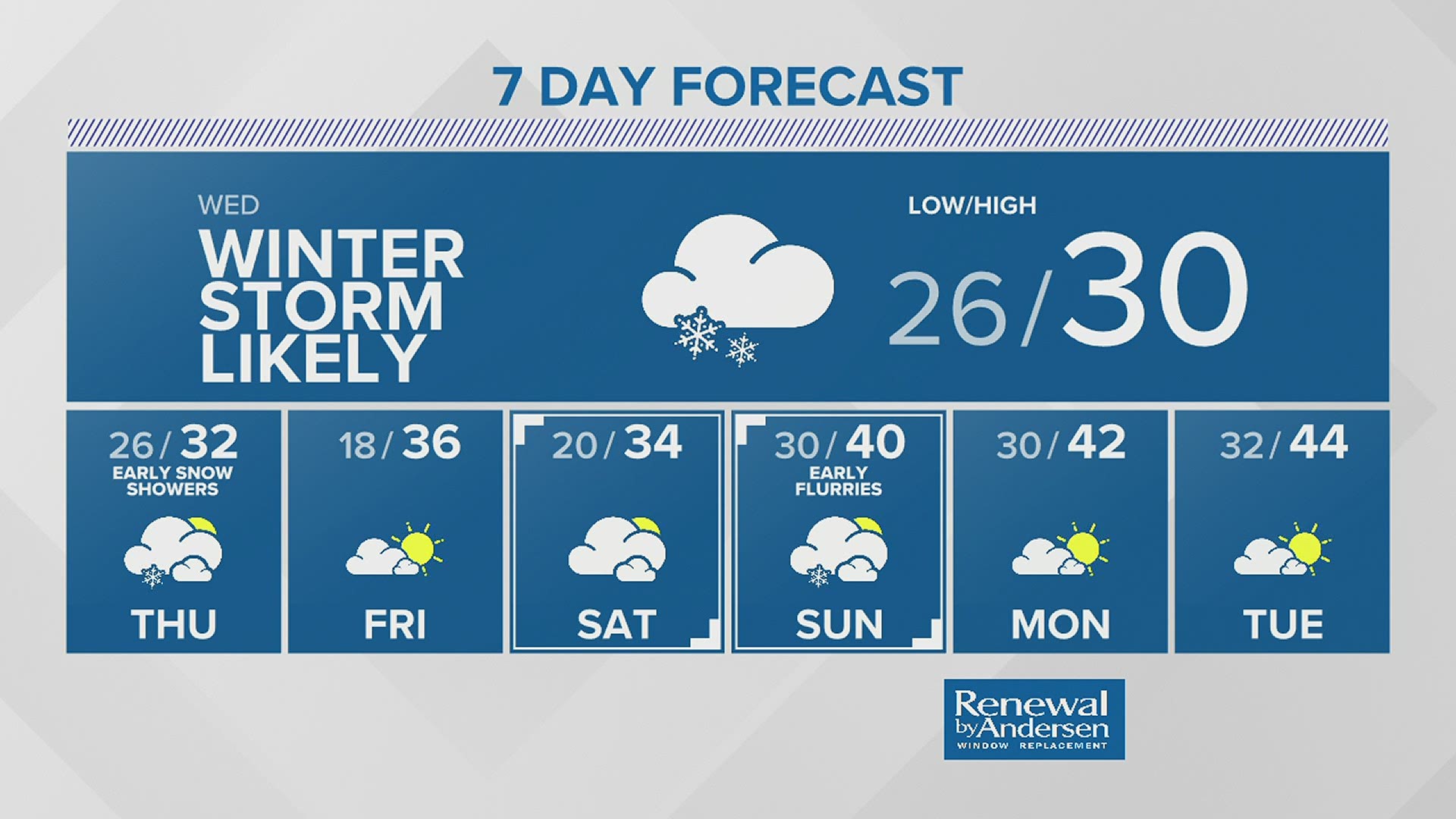HARRISBURG, Pa. — With a winter storm bearing down on Central PA, the American Heart Association issued a warning Tuesday that colder temperatures and strenuous activity -- like, say, shoveling snow -- can be a dangerous combination for your heart.
"Shoveling snow or simply walking through deep, heavy snow increases the workload on the heart and can increase risk for a heart attack," the agency said. "People who do not get regular physical activity or who have existing heart conditions like heart failure, high blood pressure or cholesterol, are at the greatest risk."
To help make snow removal safer, the American Heart Association has compiled a list of practical tips.
- Talk to your doctor about your cardiovascular risk factors that could make shoveling snow or extreme exertion in cold weather more dangerous.
- Wear layers of warm clothing, hat and gloves.
- Don’t eat a heavy meal or drink alcoholic beverages prior to or soon after shoveling.
- Use a smaller shovel to avoid lifting too much heavy snow at one time.
- Take frequent rest breaks during shoveling or other activity.
- Learn the warning signs of a heart attack and call 9-1-1 right away if you experience symptoms.
Warning signs of a heart attack can include:
- Discomfort in the center of the chest that lasts more than a few minutes, or that goes away and comes back. It can feel like uncomfortable pressure, squeezing, fullness or pain.
- Discomfort in other areas of the upper body, including one or both arms, the back, neck, jaw or stomach.
- Shortness of breath with or without chest discomfort.
- Breaking out in a cold sweat, nausea or lightheadedness.
As with men, women’s most common heart attack symptom is chest pain or discomfort. But women are somewhat more likely than men to experience some of the other common symptoms, particularly shortness of breath, nausea/vomiting, and back or jaw pain.
If you experience signs of a heart attack, call 9-1-1 right away. Do not drive yourself, the American Heart Association says.
If you see a teen or adult collapse or find them unresponsive, not breathing or only gasping, call 9-1-1 and begin CPR or Hands-Only CPR right away. If an Automated External Defibrillator (AED) is available, use it as soon as possible.
Learn how to perform Hands-Only CPR any time at www.heart.org/handsonlycpr.

